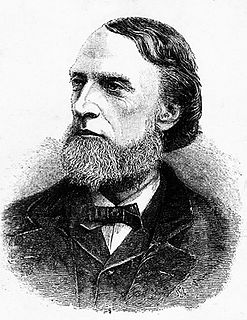A Quote by Alistair Begg
We find Christ in all the Scriptures. In the Old Testament He is predicted, in the Gospels He is revealed, in Acts He is preached, in the epistles He is explained, and in Revelation He is expected.
Quote Topics
Related Quotes
The Old Testament records the preparation for the coming of the Messiah. The Gospels record the coming of the Messiah, Jesus Christ our Lord. The book of Acts records the propagation of the gospel (the good news) concerning Jesus Christ. The Epistles (letters) explain the gospel and its implications for our lives. The book of Revelation anticipates and describes the second coming of Jesus Christ and the establishment of His eternal kingdom. From beginning to end, the Bible glorifies Jesus Christ and centers on Him. Its Christ-centeredness is one of its wonderful features.
It's not as if the New Testament writers came along and said, "The culmination of Old Testament books is more books, New Testament books." In some ways they thought instead of the culmination of Old Testament books being Christ himself, the word incarnate as the opening verses of Hebrews 1 put it. In the past God spoke to the fathers by the prophets, but in these last days he has spoken to us by his son and the son is revelation.
Once we truly grasp the message of the New Testament, it is impossible to read the Old Testament again without seeing Christ on every page, in every story, foreshadowed or anticipated in every event and narrative. The Bible must be read as a whole, beginning with Genesis and ending with Revelation, letting promise and fulfillment guide or expectations for what we will find there.
Let the gentleman go to Revelation to learn the decree of God - let him go to the Bible. . . . I said that slavery was sanctioned in the Bible, authorized, regulated, and recognized from Genesis to Revelation. . . . Slavery existed then in the earliest ages, and among the chosen people of God; and in Revelation we are told that it shall exist till the end of time shall come. You find it in the Old and New Testaments - in the prophecies, psalms, and the epistles of Paul; you find it recognized - sanctioned everywhere.
We may compare the Bible to the Old Testament Tabernacle in the wilderness with its three courts. The outer court is the letter of the Scriptures; the inner court, or holy place, is the truth of the Scriptures; the holiest place of all is the person of Jesus Christ; and only when we pass the inmost veil do we come to Him.
In our learning, let us not neglect the fountain of revelation. The scriptures and the words of modern-day apostles and prophets are the sources of wisdom, divine knowledge, and personal revelation to help us find answers to all the challenges in life. Let us learn of Christ; let us seek out that knowledge which leads to peace, truth, and the sublime mysteries of eternity.
The Church was resolved to have a New Testament, and as, after the lapse of more than three hundred years, no handwriting could be proved or disproved, the Church, which like former impostors had then gotten possession of the State, had everything its own way. It invented creeds, such as that called the Apostle's Creed, the Nicean Creed, the Athanasian Creed, and out of the loads of rubbish that were presented it voted four to be Gospels, and others to be Epistles, as we now find them arranged.
The study of everything that stands connected with the death of Christ, whether it be in the types of the ceremonial law, the predictions of the prophets, the narratives of the gospels, the doctrines of the epistles, or the sublime vision of the Apocalypse, this is the food of the soul, the manna from heaven, the bread of life. This is "meat indeed" and "drink indeed."



































